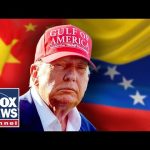A battle over public safety is intensifying in Chicago, as the president’s new crime crackdown calls for the deployment of federal troops to stem the city’s growing violence. This move has set city leaders and the White House on a collision course, with local officials loudly opposing the involvement of the National Guard and ICE agents. Yet, on the city’s streets, many residents increasingly seem open to the idea of federal help, driven by exasperation with surging crime and a local leadership often viewed as more interested in posturing than protecting.
Week after week, the headlines out of Chicago paint a grim picture: more than fifty-four shootings over the weekend, seven people dead, and police struggling to gain a foothold. While bureaucrats squabble over jurisdiction and legal authority, everyday families live in fear, checking over their shoulders and praying that they’re not caught up in the next act of carnage. The city’s reluctance to accept federal assistance is seen by many as a failure to treat the crisis with the seriousness it demands, relying instead on tired talking points and unconvincing promises.
One resident described it candidly in a public forum: the streets haven’t magically turned into “Mayberry” just because city hall claims reform is underway. Carjackings and shootings are now frighteningly routine, sometimes within sight of the mayor’s residence. In this environment, calls for “restraint” ring hollow to those whose safety is on the line. Increasingly, Chicagoans appear willing to accept things as they are—armed federal presence and all—if it means the difference between chaos and relative order.
Despite public frustration, the city’s political leadership seems more focused on resisting Washington’s intervention than on generating real solutions. Critics argue that the aversion to federal help is less about local control and more about political theater, using opposition to the president as a veil for lack of action. If the previous administration had floated such a proposal, some suspect city hall might have welcomed it—perhaps even with a celebratory press conference. Instead, the response today is obstruction and gridlock, with local leaders hoping to outlast Washington’s will rather than solve the epidemic of violence.
The tragedy here isn’t just the shootings or the bloodshed; it’s the political paralysis that wastes valuable opportunities to protect innocent lives. Chicago’s crisis demands more than headlines and handwringing—it calls for bold leadership and the courage to accept help, wherever it comes from. If city hall continues to put politics over people, the city’s long-suffering residents may look elsewhere for solutions, and one day, demand answers from those elected to serve.




